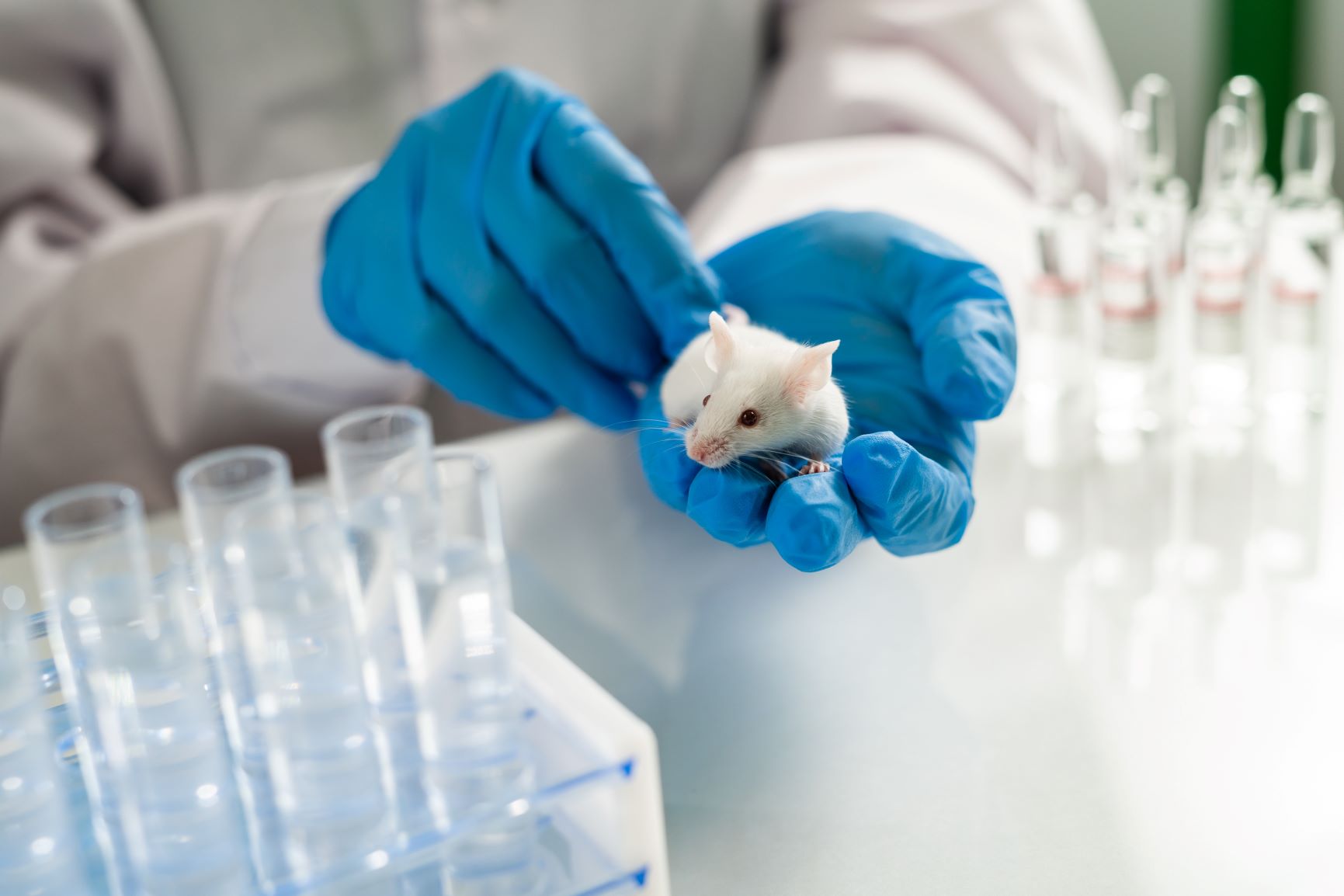Questions and information from the life sciences
FAQ
Proposals can be submitted in English or German. Opt for the language that is commonly used in your academic discipline. English-language proposals are welcome because this enables access to a broader group of potential reviewers. As a result, it is easier to avoid any potential bias.
Research in the life sciences is often carried out in teams and by several individuals working together. For this reason, it is not unusual for two or even three applicants to submit an individual project proposal jointly. In such cases, the roles of the applicants must be clearly described in the proposal and the funds requested must be itemised.
There is no fixed total cost: the funding requirement must be derived from the work programme and from the cost rationale set out in the proposal. In particular, the personnel categories should be derived from the work programme, which must provide details of working methods and methodological expertise. A special justification is required for items of instrumentation costing over €10,000, service costs and third-party orders (e.g. sequencing costs), as well as additional funding requirements for travelling.
Funds for sequencing costs (Next Generation Sequencing, NGS) can only be applied for in connection with a project. It is not possible to apply for sequencing costs alone without embedding them in a DFG project. Projects are always subject to the relevant programme-specific regulations. Funding can be provided to cover project specific costs for sequencing (gross) including sample preparation. Applicants are free to nominate any service organisations in Germany or abroad as NGS service providers.
If the costs for sequencing services are less than €100,000 (gross), funding is applied for using the basic module of the funding programme in question, under “Consumables” or “Other costs”. It is advisable to list utilisation and service costs under “Other costs” and document these by including a quotation. If the proposed sequencing costs are between €100,000 and €1 million (gross) and if the sequencing is to be carried out at a non-profit sequencing facility in Germany, the sequencing costs must be applied for using the “Services” module and as part of an “infrastructural co-application” (DFG form 54.02(interner Link)).
For an “infrastructural co-application”, the sequencing facilities must fulfil the requirements for the recognition of usage costs described in the DFG guideline 55.0(interner Link); in particular, usage regulations must be in place.
Applicants are still free to name non-profit service organisations in Germany and abroad and/or commercial providers as NGS service providers in proposals without selecting the “Services” module. Depending on the costs and the location of the provider, an appropriate rationale must be provided, particularly with regard to ensuring data protection aspects and the protection of rights to the data.
It is not possible to apply for sequencing costs in excess of €1 million (gross).
When using services or placing third-party orders, comparative offers must always be submitted if the costs exceed €10,000. If there are reasons why only one provider can be considered, the reasons must be stated. In this case, there is no need for comparative offers. If an institution’s internal service facility (e.g. a core facility) is used, offers must be submitted that set out the amount of the project-specific expenses. This should also show the regular tasks carried out by the service facility so as to indicate the project-specific and maintenance costs in a transparent manner (catalogue of costs and services). General costs not relating specifically to the project are not eligible for funding.
By submitting a proposal to the DFG, all applicants undertake to comply with the provisions of the German Animal Welfare Act (Tierschutzgesetz, (TierSch(externer Link))) and the German Animal Welfare Laboratory Animal Ordinance (Tierschutz-Versuchstierverordnung (TierSchVers(externer Link))). In the work programme, the experimental design of animal experiments must be described in a clear and comprehensive manner. Particularly the choice of the animal model and the estimated number of animals used must be convincingly justified. In the supplementary information of the proposal, please explain how animal welfare measures based on the 3Rs principle (Replacement, Reduction, Refinement) are implemented in the specific project. The direct link between animal welfare measures and their impact on the scientific validity of the specific experiment is to be considered in particular (e.g. the necessity and validity of the chosen animal model, statistically reliable case numbers, reasonable study groups taking reproducibility and generalisability into account, etc.). Additional information and guidelines are available in the publication "Animal Experimentation in Research: The 3Rs Principle and the Validity of Scientific Research(Download).
This information is mandatory for experiments involving vertebrates, decapods and cephalopods pursuant to §8 of the TierSchG (German Animal Welfare Act) as well as for cases where the killing of these animals is necessary for organ or tissue removal for scientific purposes.
If you require funding for the acquisition, breeding and keeping of experimental animals, the costs must be itemised and explained. For keeping rats and mice, a standard rate applies. There are no standard rates for other animal species.
Here you can access the DFG form 55.03 (in German only(interner Link).
In the case of projects financed by the DFG which are to be carried out partly or entirely abroad, the legal provisions applicable in the respective country must be observed. This may require the involvement of an ethics committee in the relevant destination country or partner country. For this reason, applicants must seek advice from the ethics committee responsible in the respective country, in accordance with the usual rules.
However, funding can only be approved for research projects that meet German ethical and legal standards. This means that a statement issued by a foreign ethics committee does not relieve the applicant of the obligation to determine whether a statement also has to be obtained from a German ethics committee. It might still be necessary to obtain an additional statement from the locally responsible ethics committee in Germany. However, the German ethics committee may adopt the statement issued by the foreign ethics committee.
For information on this, see our page on Clinical Researc(interner Link) (in German only).
For information on this, see the Clinical Trials programm(interner Link) pages.
Yes, that is possible. The subject area of particular relevance here is “Medical Physics, Biomedical Technology”. Depending on the focus of the research question, proposals involving a technical-medical application can also be submitted in the engineering sciences, computer science and natural sciences.
For information on this, see our page on Medical Physics (in German only(interner Link).
DFG funding proposals must contain careful planning, documentation and description of how the research data is to be handled and the objects on which the data is based. Wherever possible, it is important to enable reuse of the research data and potentially also the objects by other users. It is possible to apply for any costs incurred that go beyond the institutionally established requirement to archive the published results.
See "Subject-specific Recommendations on the Handling of Research Data(interner Link) for details. Special recommendations apply to biodiversity research.
Referred to as a “crisis of replication”, the public debate on the quality and validity of research projects has resulted in this issue gaining even greater attention within the research community itself. For this reason, reviewers increasingly expect measures to be taken to promote the validity and replicability of research results.
For the field of medicine and biomedicine, please refer to the guidelines issued by the Senate Commission on Key Questions in Clinical Researc(Download):
For further ideas, see the online portal "Research Integrity(externer Link) with information specifically relevant to the life sciences in the preambl(externer Link).
Statistical planning of research and statistical evaluation of results are usually crucial to being able to test the hypotheses proposed in the project and derive valid results from them. Such planning is a central component of quality assurance. For this reason, information on case number planning/power analysis (especially in animal experiments or human studies) is essential in order for reviewers to be able to assess the quality of the project. This also applies if statistical data already has to be included in the animal experiment application or the application for an ethics statement.
Exceptions apply in the case of exploratory methods, but this should be clearly stated in the proposal.
Senate Commissions
The Senate has established a number of Senate Commissions to advise the German Federal Parliament and the authorities on issues relating to various aspects of research in the life sciences:
- Permanent Senate Commission for the Investigation of Health Hazards of Chemical Compounds in the Work Are(interner Link)
- Permanent Senate Commission on Food Safet(interner Link)
- Permanent Senate Commission on Animal Researc(interner Link)
- Permanent Senate Commission on Genetic Researc(interner Link)
- Permanent Senate Commission on Key Questions in Clinical Researc(interner Link)
- Permanent Senate Commission on Fundamental Issues of Biological Diversit(interner Link)
- Permanent Senate Commission on the Transformation of Agricultural and Food System(interner Link)
Specific topics and activities
Current calls for proposals
In Information for Researcher(interner Link), the DFG provides researchers in all scientific disciplines with information about current calls for proposals under DFG funding programmes.
Contact
Contact(externer Link) at the DFG Head Office in the area of the life sciences.
Further Information
For details of DFG funding programmes, see All Funding Programme(interner Link).









